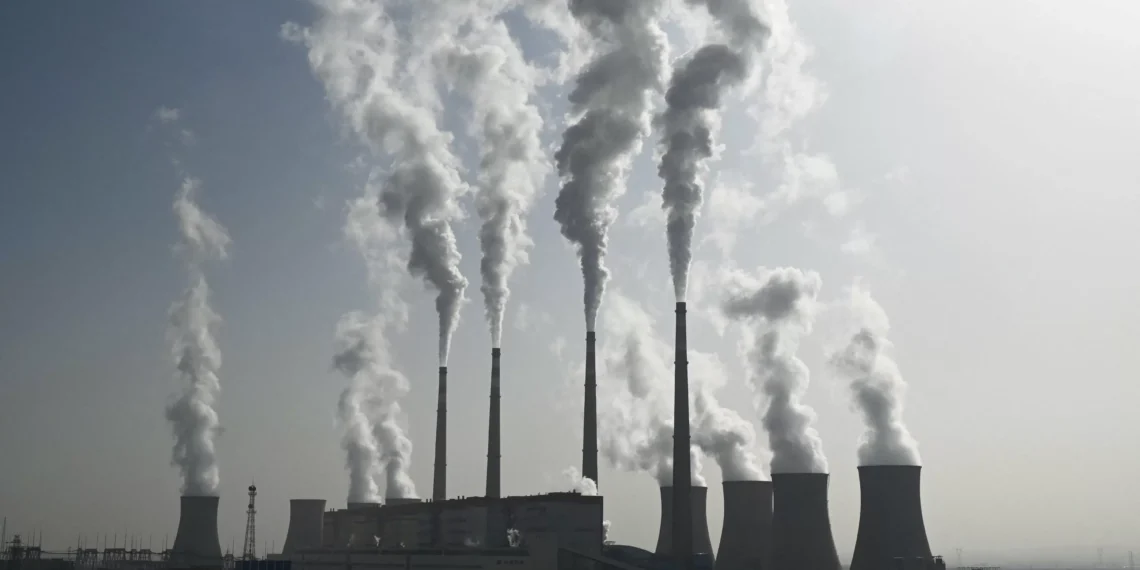Concentrations of the powerful greenhouse gas methane in the atmosphere are rising at an accelerating pace, threatening efforts by countries to meet their climate targets, according to a recent study. This alarming trend highlights the urgent need for immediate action to address this pressing issue and mitigate its impact on our planet.
Methane is a potent greenhouse gas, with a global warming potential 28 times higher than carbon dioxide over a 100-year time frame. It is primarily produced by human activities such as agriculture, fossil fuel production, and waste management. However, natural sources such as wetlands and termites also contribute to its emissions.
According to the study conducted by the Global Carbon Project, methane concentrations in the atmosphere have reached a record high of 1,875 parts per billion (ppb) in 2019, which is 9% more than the pre-industrial levels. This increase is the largest since 2007 and is significantly higher than the average annual growth rate of 0.3% over the past decade.
The rise in methane levels is particularly concerning as it could potentially derail the progress made in reducing carbon dioxide emissions. This is because methane is a more potent greenhouse gas and has a shorter lifespan in the atmosphere, meaning it can cause more immediate and severe impacts on the climate.
The study also revealed that the main driver of this increase is the surge in emissions from the oil and gas industry, particularly from shale gas production in the United States. The use of fracking, a technique used to extract natural gas from shale rock, has been identified as a significant source of methane emissions. In addition, the growing demand for natural gas as a cleaner alternative to coal has also contributed to the rise in methane levels.
The implications of this trend are far-reaching, as rising methane levels can have a cascading effect on our planet’s climate. It can lead to increased temperatures, changes in rainfall patterns, and the melting of permafrost, which can release even more methane into the atmosphere. This could create a dangerous feedback loop, exacerbating the effects of climate change and making it even more challenging to mitigate its impact.
Furthermore, this rise in methane emissions threatens to undermine the efforts of countries to meet their climate targets under the Paris Agreement. The agreement aims to limit global temperature rise to well below 2 degrees Celsius and pursue efforts to limit it to 1.5 degrees Celsius. However, with methane emissions on the rise, achieving these targets may become increasingly difficult.
Therefore, it is crucial that immediate action is taken to address this issue and reduce methane emissions. This includes implementing stricter regulations and monitoring systems for the oil and gas industry, as well as promoting the use of renewable energy sources.
Additionally, reducing food waste and implementing sustainable agricultural practices can also help to reduce methane emissions from the agricultural sector. Methane capture technology can also be used in landfills to prevent the release of methane into the atmosphere.
But it’s not just up to governments and industries to take action. As individuals, we can also play a significant role in reducing methane emissions by making small changes in our daily lives. This includes reducing our meat consumption, which can help to decrease methane emissions from livestock, and properly disposing of food waste.
The recent study on rising methane levels serves as a wake-up call for all of us to take immediate action to address this pressing issue. We cannot afford to delay any longer, as the consequences of inaction will have a severe impact on our planet’s climate and our future.
However, there is still hope. The study also highlighted that reducing methane emissions can have a significant and immediate impact on slowing down the rate of global warming. This means that if we act now, we can still make a difference and mitigate the worst effects of climate change.
In conclusion, the accelerating pace of methane emissions is a cause for concern, but it is not too late to take action. Governments, industries, and individuals must come together to implement effective and immediate solutions to reduce methane emissions and mitigate its impact on our planet. Let’s take this as an opportunity to work towards a cleaner and more sustainable future for all.






